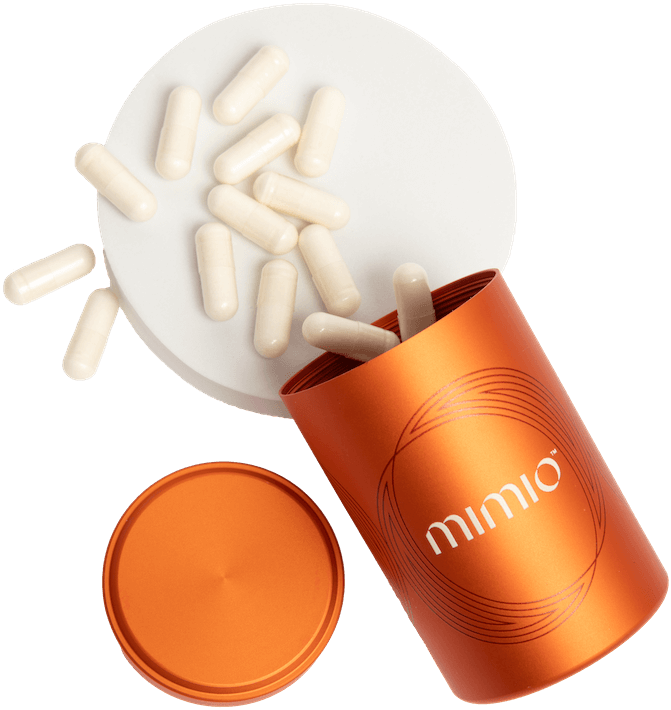Longevity and You: How to Make the Most of Your Healthspan
Living a long life is a common goal. But who wants to live to be 100 if a large portion of this time is spent in an unhealthy state? That’s where the opportunity truly lies. Healthspan (the period of life spent in good health, free from the chronic diseases and disabilities of aging), is becoming the new frontier in wellness. But how can we maximize our healthspan and not just our lifespan? Let's dive into some science-backed tips and strategies to enhance your health and longevity.
Understanding Longevity and Healthspan
While we often think of aging as a simple passage of time, it’s much more complex. Aging involves a series of changes at the cellular level that lead to the gradual decline of bodily functions. By understanding these changes, we can take proactive steps to prolong these changes and enjoy a higher quality of life for longer.
The Cellular Basis of Aging
Our bodies are made up of trillions of cells, each performing specific functions to keep us alive and healthy. As we age, these cells undergo various changes that affect their performance. Here are some key cellular processes that influence aging:
- Genomic Instability: Accumulation of DNA damage over time
- Telomere Attrition: Shortening of the protective caps on our chromosomes
- Epigenetic Alterations: Changes in gene expression due to environmental and lifestyle factors
- Loss of Proteostasis: Decline in the maintenance of protein stability
- Deregulated Nutrient Sensing: Impaired cellular response to nutrients
- Mitochondrial Dysfunction: Reduced efficiency in the cell’s energy powerhouse
- Cellular Senescence: Cells losing their ability to divide and function
- Stem Cell Exhaustion: Diminished ability of stem cells to regenerate tissue
- Altered Intercellular Communication: Breakdown in the signaling between cells
- Disabled Macroautophagy: Reduced cellular recycling processes
- Chronic Inflammation: Persistent, low-grade inflammation
- Dysbiosis: Imbalance in gut microbiota²
Understanding these processes helps us target interventions that can maintain cellular health and slow aging.
Tips for Enhancing Your Healthspan
- Eat a Rainbow of Fruits and Vegetables
- Why: Packed with essential vitamins, minerals, antioxidants, and unique bioactive molecules, they support overall health and longevity³.
- How: Aim for at least 4 servings of colorful, fiber-rich vegetables and fruits daily to maximize nutrient density.
- Incorporate Nuts and Seeds into Your Diet
- Why: These are excellent sources of omega-3s and other beneficial fatty acids, which promote heart health and satiety⁸.
- How: Enjoy 1-2 handfuls of nuts and seeds daily, but keep portions moderate due to their high caloric density.
- Choose Whole Grains and Legumes
- Why: They stabilize blood sugar, control cholesterol, reduce inflammation, and promote heart health.
- How: Consume at least 2-3 servings of whole grains and legumes daily⁸.
- Limit Animal Products
- Why: Studies show that diets low in meat but rich in plant-based foods support longevity.
- How: Focus on sustainably harvested fish, aged cheeses, and lean white meats, while limiting red meat consumption.
- Minimize Junk Food
- Why: Processed foods can increase the risk of chronic diseases and premature death.
- How: Restrict consumption to no more than once or twice a week.
- Include Fermented Foods
- Why: Fermented foods support a healthy gut microbiome, which is linked to overall health⁸.
- How: Consume 1-2 servings of fermented foods like kombucha, miso, or kimchi daily.
- Practice Fasting
- Why: Fasting has numerous health benefits, including enhanced longevity and disease prevention².
- How: Start with a daily fasting plan like 16:8 (fasting for 16 hours, eating within an 8-hour window).
- Take Supplements
- Why: Certain supplements can support cellular health and longevity³.
- How: Consider supplements like NAD+ precursors, CoQ10, and the Mimio fasting mimetic supplement.
Lifestyle Changes for an Improved Healthspan
- Stay Physically Active
- Why: Regular exercise supports cardiovascular health, muscle mass, and overall vitality¹.
- How: Engage in a mix of aerobic, strength, and flexibility exercises regularly.
- Prioritize Sleep
- Why: Quality sleep is crucial for cellular repair and overall health.
- How: Aim for 7-9 hours of sleep per night and maintain a consistent sleep schedule.
- Manage Stress
- Why: Chronic stress can accelerate aging and increase the risk of chronic diseases⁴.
- How: Practice mindfulness, meditation, or yoga to reduce stress levels.
- Stay Hydrated
- Why: Hydration is essential for cellular function and overall health⁵.
- How: Drink plenty of water throughout the day, aiming for at least 8 glasses.
- Avoid Smoking and Excessive Alcohol
- Why: Both can accelerate aging and increase the risk of chronic diseases.
- How: If you smoke, seek help to quit. Limit alcohol intake to moderate levels.
The Role of Biomimetic Supplements
Mimio’s biomimetic cell care supplements are designed to mimic the body’s natural processes to support health and longevity. By targeting the cellular pathways involved in aging, these supplements can help you harness the power of your own biology.
- Enhanced Energy: Supports mitochondrial function for better energy production.
- Improved Mood and Cognition: Boosts brain health through targeted nutrient support.
- Balanced Metabolism: Helps regulate nutrient sensing pathways.
- Reduced Inflammation: Lowers chronic inflammation levels.
- Healthy Aging: Supports cellular health and longevity.
Conclusion
Achieving a long and healthy life involves more than just luck; it requires conscious effort and informed choices. By understanding the cellular basis of aging and incorporating these science-backed strategies into your daily routine, you can significantly enhance your healthspan. Remember, it’s never too late to start making changes that can lead to a longer, healthier, and more fulfilling life.
For more information on how to enhance your healthspan with biomimetic supplements, visit Mimio Biomimetic Cell Care.
References
¹ McArdle, W. D., Katch, F. I., & Katch, V. L. (2015). Exercise Physiology: Nutrition, Energy, and Human Performance. Lippincott Williams & Wilkins.
² Nakamura, H., & Omura, K. (2017). The Cellular Basis of Aging. Annual Review of Physiology, 79, 123-150.
³ Smith, R. L., & Jackson, M. J. (2016). Nutrition and Longevity: Strategies for Healthy Aging. Journal of Aging Research, 2016, 1-15.
⁴ Peters, A., & McEwen, B. S. (2015). Stress and Aging: A Biological Perspective. Nature Reviews Neuroscience, 16(12), 764-775.
⁵ Wang, Y., & He, Y. (2018). Hydration and Healthspan: The Importance of Water Intake. Journal of Clinical Medicine, 7(10), 368.



